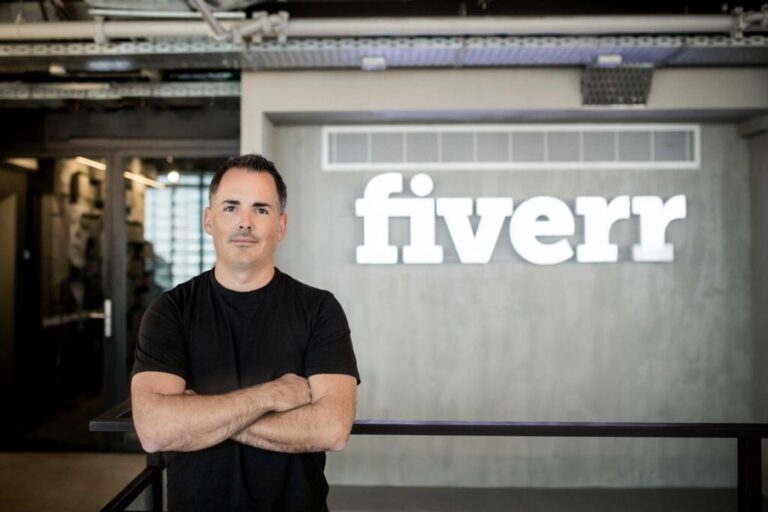Massachusetts-based Two Lanterns Venture Capital is a seed fund that invests in software startups in the U.S. and Israel, and plans to invest 50 percent of its second fund in Israeli startups.
It’s not that the VC feels sorry for Israel in these difficult years of war. John Harthorn, founder and managing director of Two Lanterns, said in a recent online Israeli Innovation Webinar that the decision was based on money and good taste.

“Among the Two Lanterns venture portfolio, our 12 Israeli investments currently outperform the remaining startups by nearly 1.7x,” Harthorne said, adding, “Israeli founders are is likely to be significantly higher than the group average.”
The webinar examined why this is so, how current conflicts are impacting the startup ecosystem, and which sectors of the ecosystem are most attractive to investors.
Harthorne, who previously founded and led MassChallenge, a nonprofit accelerator for high-impact startups including many Israeli companies, says the reason “Israel produces such great founders” is simple. He said it was clear.
“I believe Israelis are the most resilient people on earth,” he said. “Starting a startup is a very difficult uphill battle, so resilience is one of the most important factors for success.”
Yoni Chafetz, a partner at Lightspeed Venture Partners, which funds disruptive companies, consumer, fintech and health innovators in Israel and other countries, says investors are looking for: He said these are innovation, the availability of capital, and the ability to invest and withdraw capital.
“I believe all these things will grow in Israel. I see no danger [relation to] that. “
New statistics seem to support these statements.
Despite the ongoing war, which has severely affected business on various levels, Israel raised nearly $9 billion between October 2023 and August 2024, ranking third in the world. It maintains its status as a technology investment hub, reports the Israel Innovation Authority.
cyber on top
Cybersecurity companies (startups but mostly established companies) grabbed the lion’s share of that pie. Case in point: Tel Aviv cyber startup Torq recently closed a $70 million round, bringing its investment to $112 million in 2024 amid triple-digit growth.
“On the cyber front, the flywheel is pretty much complete at this point in terms of startup evolution,” said panelist Udi Mokadi. We have 3,000 employees in 15 countries and serve more than 8,000 business customers.

He said many Israeli startups are developing security solutions to address new threats arising from technologies such as artificial intelligence.
“Israel will probably end up building trust and security and governance around AI, rather than building language models and infrastructure around AI,” Israeli startup Clarity wrote earlier this year. said Mokadi, who was one of the angel investors. Protect against deepfakes.
He agreed with Mr. Harthorne that resilience is a key element of Israel’s success.
“Just like during COVID-19, we have seen incredible resilience and even productivity gains. Everyone has stepped forward and leaned in. The industry as a whole has said, “What is Israel? That’s exactly what I believed in.
Mokadi said some U.S. funds recognized that “this is a great time to invest in Israel because we can get through this and come back strong.”
AI and defense
Lightspeed Ventures’ Cheifetz agreed that cyber will continue to be “very big” and that startups leveraging AI in innovative ways should also pique investor interest.
“AI moves fast, as opposed to the slow pace of quantum computing,” he said.
Tel Aviv-based serial entrepreneur Mika Kaufman, founder of Fiverr, the world’s top freelance platform, says that “everything related to digital transformation” is attractive to investors in Israeli technology. “things”.
He cited cyber, consumer internet, SaaS (software as a service), and defense as areas of particular interest.

“Venture capital has largely stayed away from the defense industry, but Israel has a lot of knowledge in that area,” Cheifetz said. (Mokadi explained with a wry smile, “In defense technology, we want to test in real time, and unfortunately in Israel we can’t do that.”)
“From an investment perspective, Israel is almost as competitive and attractive as the Valley,” said Cheifetz. One of the main reasons is that the military hand-picks top STEM students at the high school level. He said that this is because of the
The IDF “places them in units that fast-forward their careers by 10 years. Our two main sources of trade in Israel are talent coming out of these sectors and re-entrepreneurs coming out of successful companies.” ” he said.
“We are investing as intensively as ever and will continue to do so.”
high technology will become widespread
Panelists agreed that the current situation is not ideal, citing a decline in early-stage funding, a decline in new startups, and severe talent shortages and understaffing due to reserve duty starting Oct. 7. did.

“The current conflict has arisen in a challenging macroeconomic and geopolitical environment around the world. On top of that, we also have our own struggles. Cutting back is the easier choice,” Kaufman said.
“On the other hand, startups that had every reason in the world not to survive are still growing and finding ways to cope with the situation. In the long run, I think Israel as a whole and high tech in particular will win.” I believe that we have a society of absolute heroes and patriots who want to build a great future here.”
Despite widespread anti-government protests and military threats on multiple fronts, Kaufman added, “Israeli society and its high-tech environment are far bigger and more powerful than any government or crisis.” . As the next wave of innovation comes from Israel, it is critical that we continue to support high tech through this crisis. ”
Click here to view the entire webinar.
#investors #bullish #Israel #wartime #ISRAEL21c